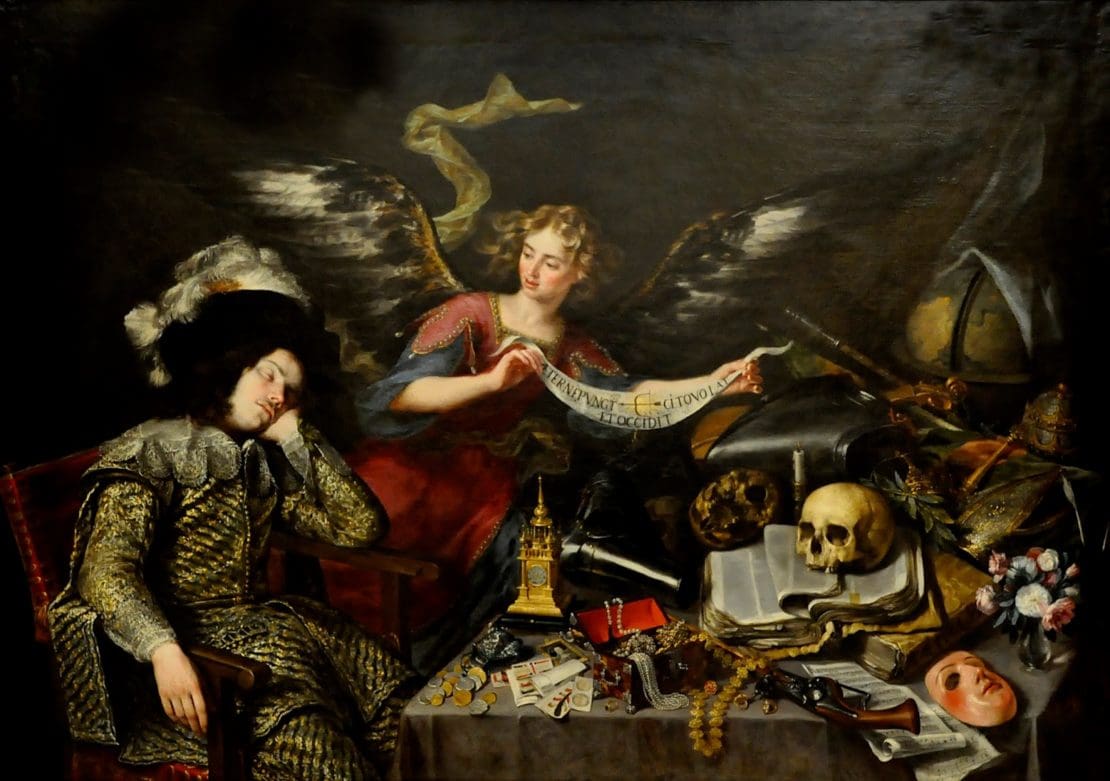Composing My Nature
By Theophilus – a member who wishes to remain anonymous.
com·pos·ite /kəmˈpäzət/ adjective – made up of various parts or elements.
Before my return to the Catholic Church, I had a very different relationship with my body. I used to see my body as a tool to get what I wanted. It was a vehicle to bring me happiness through the satisfaction of my desires. I was the “I” in my mind who lived in my body, not my body itself. Although I was catechized enough to know that my soul was eternal, I thought that my body was just a temporary dwelling to help me get through the material world. I was exposed to New Age (or old gnostic) beliefs in my late adolescence, and through them, I came to believe that my eternal soul would one day be liberated from my earthly shell. As you can imagine, I didn’t think of my body too highly.
My college years were largely consumed by post-modern studies, by which I came to accept the body as socially and culturally constructed, with different historic times imagining and relating to the body in different ways. The body in itself had no inherent truth to reveal because all truths were relative and subjective. Even my idea of what a male body was came under critique, as I read gender and queer theorists. I came to believe that the body was a blank canvas, a neutral piece of matter, that time and history inscribed with meaning. Maleness and masculinity were fluid and evolving. Nothing was stable about the material world, so why should our bodies be any different?
Although I had been raised in a Catholic home, I never understood what Catholicism was until my adult years. My return to the Catholic Church revealed basic truths that common sense always suggested, but the modern world often denied. That truth can be known by unaided reason, a faculty given to us by God, and also by Divine revelation, i.e. Sacred Scriptures. Most importantly, Jesus Christ — God in the flesh — is the full revelation of the truth. He is the fulcrum of all history. God himself took the composite nature of a man when he came to redeem us. If God took on the soul and body of a human person — to reveal eternal truth and redeem us — then it would make sense that the body can reveal universal truths about our nature and salvation.
By learning more about the implications of the Incarnation, I came to understand the importance of the human body in general. God chose to enter into a human body and soul to redeem all of humanity. My material body is thereby connected in some way to my own redemption and salvation. It is important to who I am as a person both here on Earth and in the afterlife. In more ways than one, my body defines where I begin and where I end. On a simple level, when my body is hurt, I am hurt, because I am my body. On a supernatural level, my soul can only be saved with my body, and so my body is part of my eternal destiny. As was written previously, without a body, the soul is not complete. From sacred scripture and tradition, I saw that my soul and body were created to be together, and that I need both to be complete.
If my body and soul are one composite reality, then it naturally follows that my bodily actions have consequences in regards to my soul and vice versa. When my body was just a tool, it didn’t matter what I did with it. If I wanted to feel better, I could eat something sweet or salty, or watch immoral images on the internet. As long as I didn’t hurt anyone else, there was no harm in fulfilling any bodily desire. Likewise, I thought that acting out on my same-sex attraction was a harmless way to find pleasure and happiness as fleeting or as involved with another man as it may have been. After all, my body had needs to be fulfilled. I couldn’t imagine that what I did with other men would have any negative impact on my soul.
On the other hand, I knew that if I did something that harmed someone else, I would feel the weight of my actions on my conscience. But feeding an appetite of the body, as long as it was consensual, didn’t feel immoral, at least not on the surface. I believed I had a natural right to pleasure, sexual or otherwise, on my terms, as long as no one else was coerced into doing something he didn’t want to do.
Entering the Church was like discovering an ancient treasure trove of knowledge. If my body revealed truths about my nature and my Creator, then my bodily desires could also reveal truths about myself and God. Once I accepted that a rational God created my body and its desires, then I could accept that my sexuality was also rational, and therefore ordered toward a logical end. In the style of Aquinas, I came to see that everything in the universe is created for a specific end. When thinking about myself as a creation of God, it made sense that the final end of sexuality would be ordered to something more than bodily pleasure. It is ordered towards the possible birth of new life and the unity of the spouses.
The Catholic understanding of sexuality unveiled something I had not wanted to look at my whole life. Sexuality is a created good, made by God, for a specific purpose and reason. Having sex with men was not ordered to that specific end, and therefore goes against the purpose of our sexuality. By embracing God and understanding that he is the creator of my sexuality, I came to understand its rational purpose.
These days, I do not believe that my body is a tool to bring me pleasure. It is a gift given to me by a loving God, for a specific purpose and intention. All of my body parts and desires are part of the larger composite. I am not a material being looking only for survival and self-satisfaction, nor am I a spirit temporarily borrowing this body until my next adventure in another dimension. I am a composite of body and soul, and both my body and my soul were created for a specific end.
Ultimately, my composite nature was created for union with God. Union with God isn’t easy, but the saints are role models of how to do it. By studying the lives of the saints, I came to see that the road to God is paved with virtue. Virtue is the habit of seeking the good and avoiding the bad. Each day, I have the opportunity to practice virtue by denying selfish sexual appetites that go against the natural end of sexuality.
Chastity has opened up a huge vista on the horizon of my life. No longer am I pursuing sexual pleasure for its own sake, or to calm my anxieties, or to prove that I am desirable to others. I now know the proper use of my sexuality, and how it was first ordered to the gift of life and to God. I now offer up my chastity to God as my offering on the altar during the Holy Sacrifice of the Mass.
I now know that the actions I take with my body affect my soul. By choosing virtue, I am living in accordance with God’s intended plan for my body, which is to be a recreated soul-enshrined body, present with God eternally after the resurrection. I couldn’t have predicted that understanding my composite nature would help me pursue a virtuous life. And yet that is exactly what it has done.



(6) Comments
rose
thankyou i appreciate
rose
thankyou
Suzann
This is beautifully written!
But a phrase is incomplete at the end of the 8th paragraph. Looks like it’s an important point and I would love to read it.
Josee
Thank you brother in Christ. You give me hope . God be with you
Peter Caracci
I appreciated this blog. It gave me words of truth and encouragement.
Josee
Thank you. This is truth for all people. I wished I had understood this as a married woman even! May God be with you.